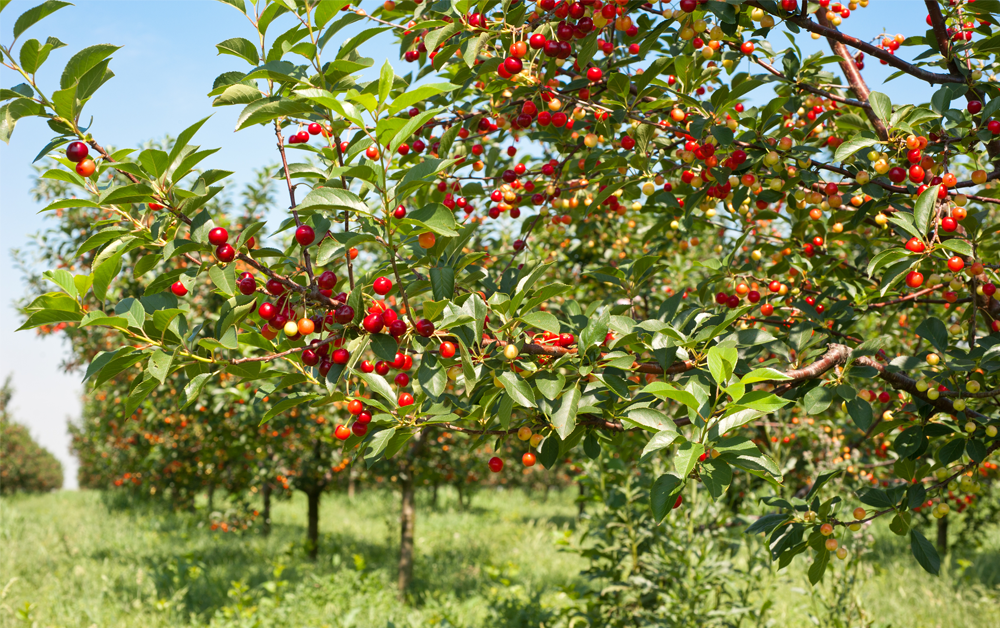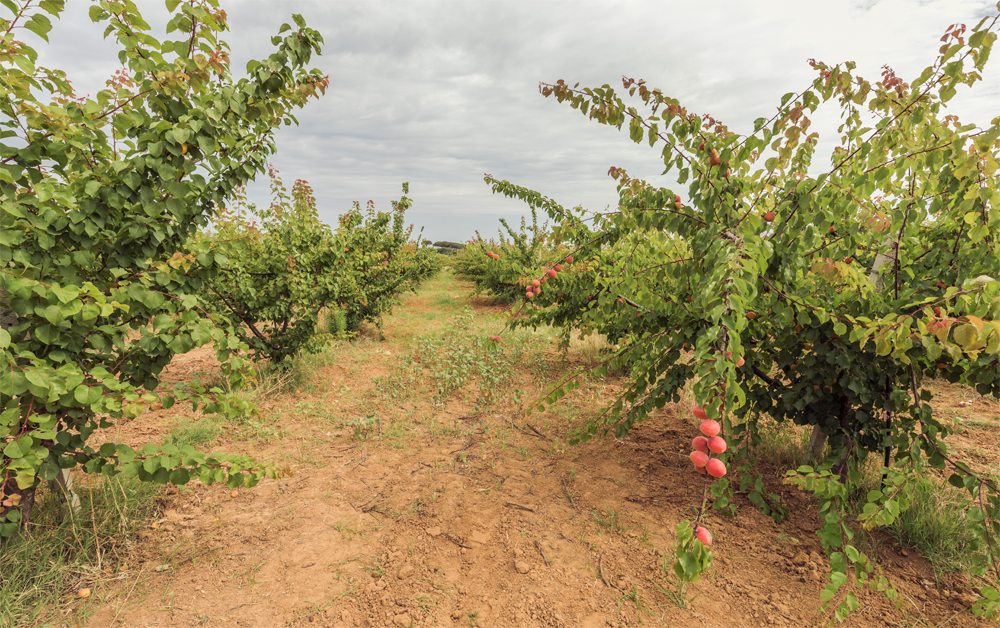Stone fruit (permanent crop) farming involves cultivating crops like peaches, plums, cherries, and apricots, which are prized for their sweet, juicy flavors and vibrant colors. These fruits share a distinctive characteristic, a hard pit or “stone” at their core. Peaches are popular for their velvety skin and juicy texture, while plums boast a tart-sweet balance. Cherries are famous for their versatility in both fresh and processed forms, and apricots are known for their smooth texture and rich flavor. Understanding the unique traits of these fruits helps farmers select varieties suited to market demand and farmin conditions.
Each stone fruit variety has specific requirements and challenges, but they all thrive under proper management. Farmers should consider the growth habits, harvest timing, and post-harvest handling needs of their chosen crops to maximize yield and quality.
Optimal Growing Conditions for Stone Fruit Orchards
Successful stone fruit farming begins with selecting the right location. These fruits thrive in well-drained soils with a sandy-loam texture and a pH of 6.0–7.5. Plenty of sunlight is vital for photosynthesis, fruit development, and flavor enhancement. Additionally, a climate with defined chill hours is essential to break dormancy and promote flowering.
Irrigaion management during the growing season is another critical factor. While stone fruits require adequate water to develop, overwatering can lead to root diseases. Drip irrigation is particularly effective for delivering precise moisture without waterlogging the soil.
Common Challenges in Stone Fruit Farming and Solutions
Stone fruit farming is not without its obstacles. Pests like aphids and peach tree borers, along with diseases such as brown rot, can threaten yields. Environmental stressors like frost and drought also pose risks. Farmers can address these challenges by using integrated pest management (IPM), applying disease-resistant spray materials, and employing frost protection measures such as heaters or wind machines.
Effective Practices for Managing Challenges:
- Pest control: use pheromone traps.
- Disease prevention: prune infected branches promptly.
- Frost protection: apply water at critical temperatures.
- Irrigation: schedule using moisture sensors.
- Mulching: retain soil moisture and regulate temperature.
Harvesting and Post-Harvest Practices for Stone Fruits
Harvesting stone fruits requires precise timing to ensure they are picked at their peak flavor, texture, and nutritional value. Each fruit type has its unique indicators of ripeness; for instance, peaches and apricots should be slightly soft to the touch, while cherries are ready when their color deepens. Careful handling during harvest is essential, as these fruits bruise easily, impacting both appearance and market value. Using tools like padded picking buckets and gentle harvesting techniques helps preserve fruit quality.
After harvest, proper post-harvest practices are critical to maintaining the value of stone fruits. Immediate refrigeration is essential to slow down ripening and reduce spoilage. Ideal storage temperatures vary depending on the fruit type but generally range from 0 to 5°C (32 to 41°F). Proper ventilation during storage helps maintain freshness, while high-quality, durable packaging prevents bruising during transport. By integrating efficient harvesting and post-harvest methods, farmers can deliver top-quality produce to markets and maximize their profitability.
Innovative Techniques and Tools in Stone Fruit Farming
Modern technologies enhance stone fruit farming. Drip irrigation improves water use efficiency, while frost protection systems guard crops against cold snaps. Advanced pruning methods promote airflow and sunlight penetration, reducing disease risks.
Key Innovations for Stone Fruit Farming:
- Drip irrigation: precise water delivery.
- Wind machines: frost prevention.
- Sensor technology: real-time soil monitoring.
- Pruning tools: improved tree health.
- Disease-resistant varieties: minimized crop loss.
How AgNote Can Help Streamline Stone Fruit Farming Operations
Sign up today for AgNote’s 7-day free trial and discover tools designed to streamline your stone fruit farming operations. From tracking irrigation to managing crop health and pest control, AgNote provides everything you need to maximize yields and ensure quality harvests. Experience the difference AgNote can make on your farm.

